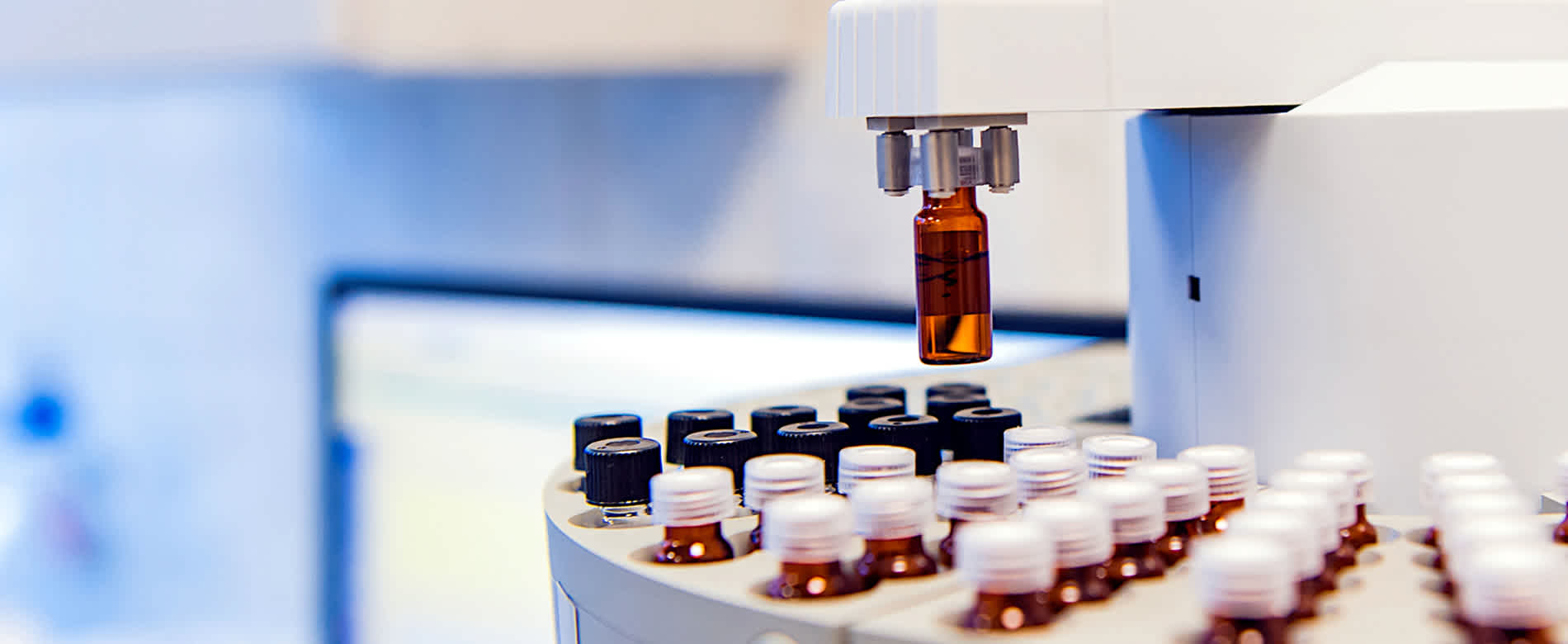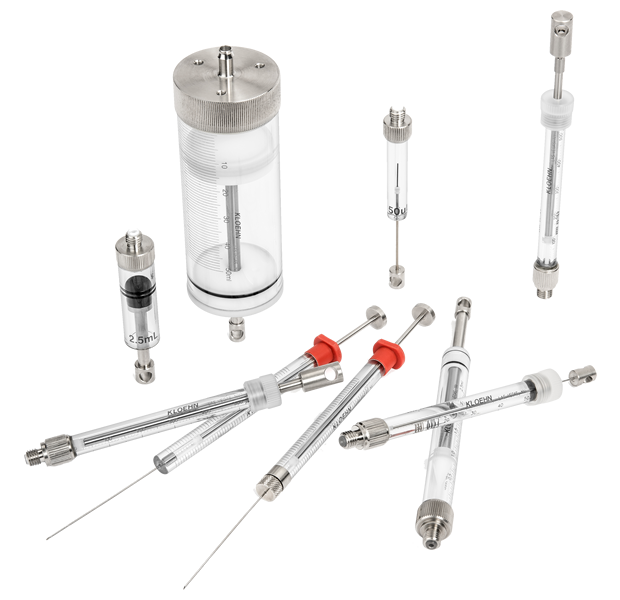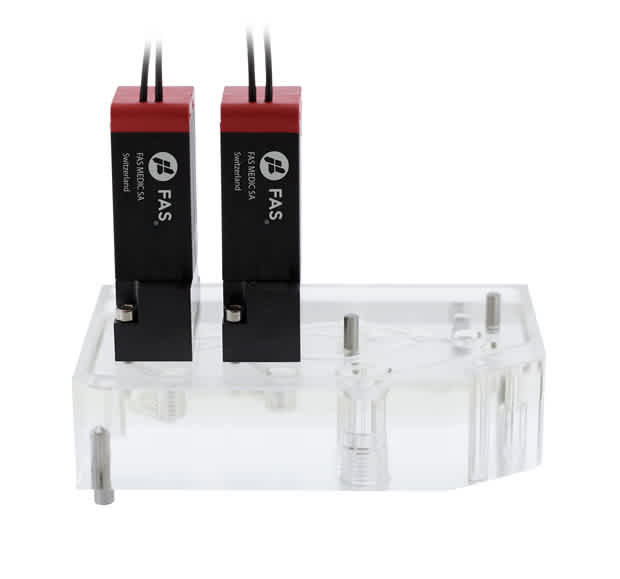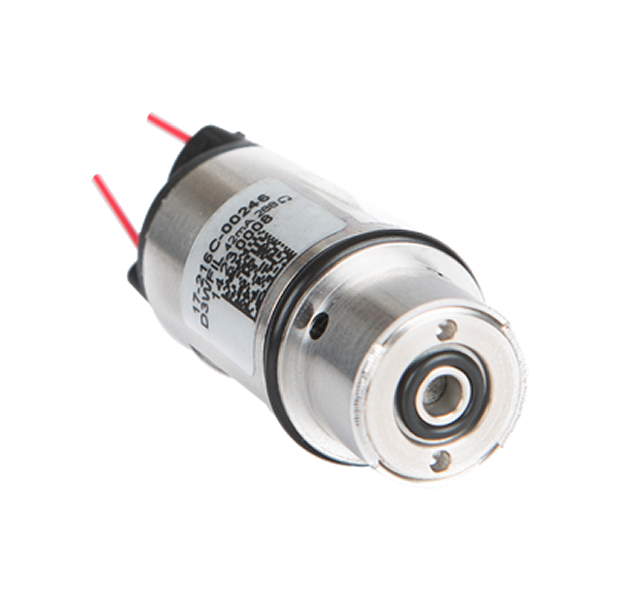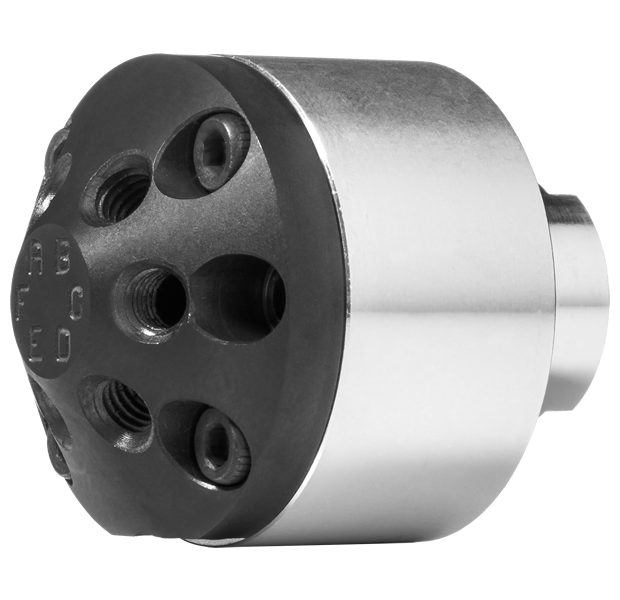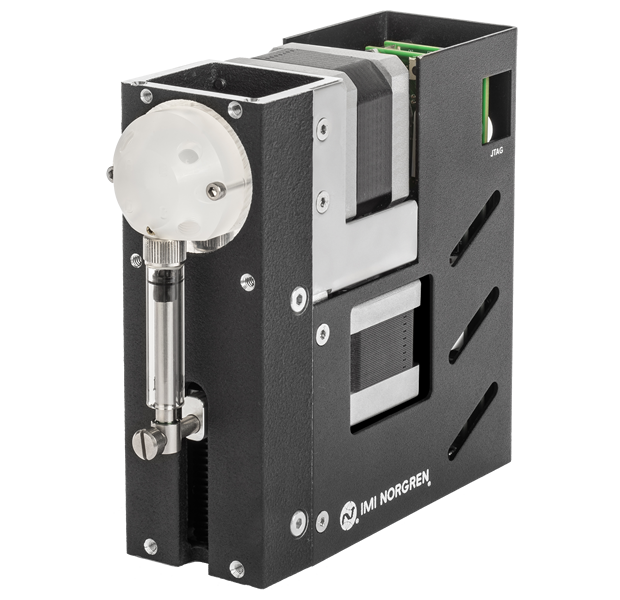Highly precise fluidic and laboratory automation components
We have solid expertise in the design of innovative fluid paths that fit the small footprint required in an analytical device.
Norgren and FAS miniature valves, mass flow controllers, fittings, pressure controllers, regulators, and manifold design capabilities are ideal to help you reduce instrument size, decrease carryover, and optimize your fluidic path. Micro-solenoid valves such as FLEXISOL, the smallest valve in the portfolio is designed specifically for integration in compact environments.
As fluidic experts, our products are particularly suited to liquid handling applications such as auto sampling. Our accurate and durable glass syringes for both manual and pump-mounted use, our pump technology, and related accessories deliver samples, reagents, and even liquid waste to the right place, at precisely the right dose, every time. With accuracy and long life, our syringe pumps have been repeatedly used in auto-sampling, dosing, dilution, and other liquid handling applications with great success. We can handle the most stringent media, flow rate, pressure, and vacuum conditions. If you require a custom solution, our world-class engineering teams can collaborate with you throughout the entire design and manufacturing process. Beyond gas and liquid control components, we collaborate with our customers on complete laboratory automation solutions including motion control, sub-assemblies all the way to contract manufacturing.
We offer high-quality solutions to meet the stringent needs of the analytical instrumentation industry.
Our highly precise fluidic components bring a new level of accuracy to many instrumentation applications



Inductively coupled plasma mass spectrometry (ICP-MS)
ICP-MS is an analytical instrument capable of detecting traces of almost all elements.
These instruments can be used in various sectors such as chemical/petrochemical, pharmaceutical, environmental, clinical, forensic, food and beverage, semiconductor, and geological. The samples, generally liquids, are nebulised, sprayed, and ionized in the inductively coupled plasma part of the instrument. In this part, argon, nitrogen, and oxygen are used as a carrier gas, plasma gas, and auxiliary gas. The control carrier gas flow rate requires on/off valves, proportional valves, and mass flow controllers (MFCs). In the mass spectrometry part of the instrument, on/off valves, proportional valves and MFCs are needed to control the flow of reaction gases like helium, hydrogen and ammonia and to increase the performance of the instrument.
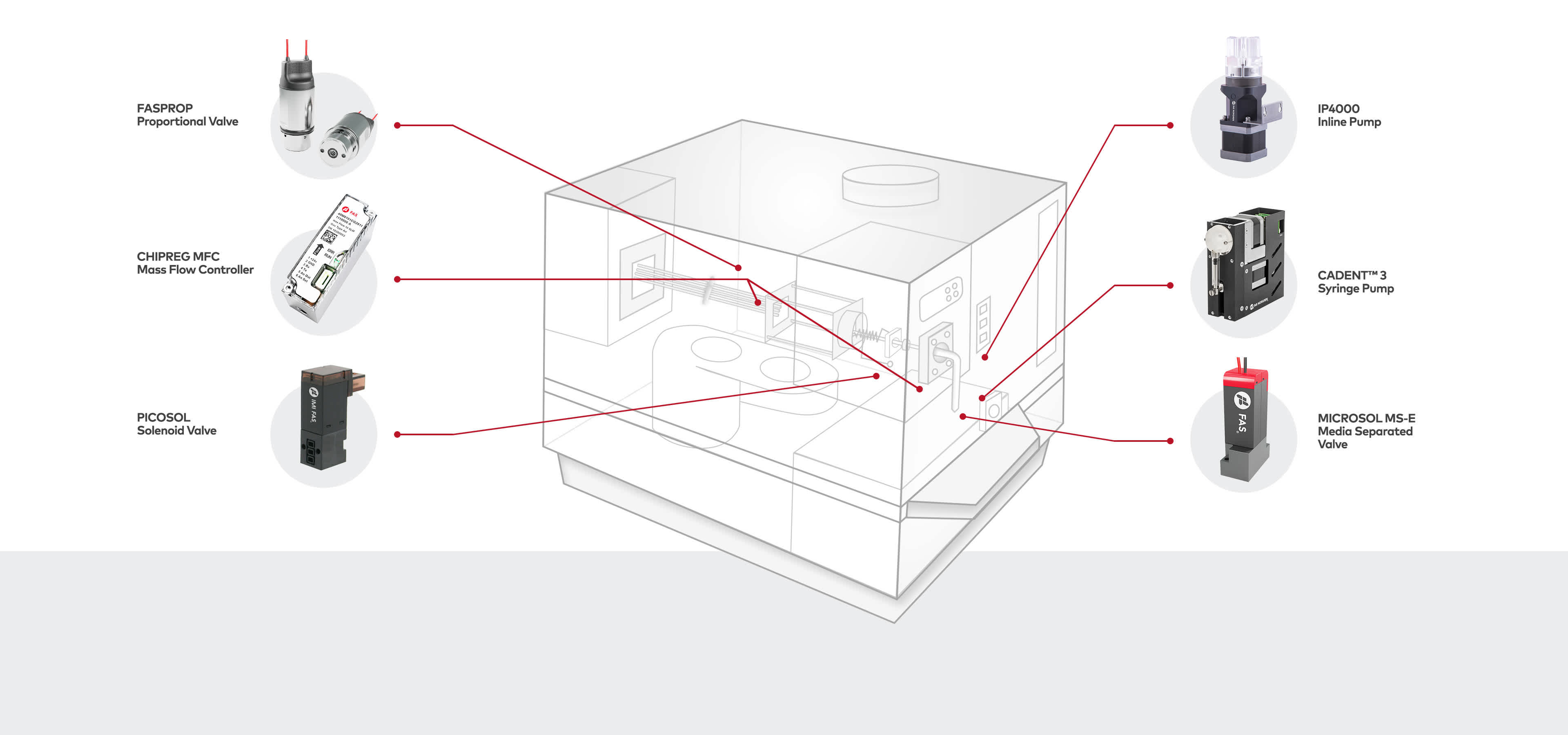
Gas chromatography (GC)
Gas chromatography (GC) is an analytical method used to separate and analyze compounds in a sample that can be vaporized without decomposition.
Gas chromatography is used in many sectors such as chemical, pharmaceutical, environmental, clinical, forensic, and food and beverage. A sample or solution is injected into the instrument and enters a gas stream which transports the sample into a separation tube known as a "column". Each component of the sample is separated inside the column. The detector measures the quantity of the components that exit the column. Several gases need to be precisely controlled at the inlet (carrier gas) and in the detector, for example controlling the flame of the FID. The quality of the measurement depends on the precision of the gas flow control inside the instrument and on potential internal/external contamination. Norgren is a supplier of choice for gas chromatography OEMs, thanks to low-flow proportional valves (FASPROP), mass flow controllers (CHIPREG), and on/off valves.
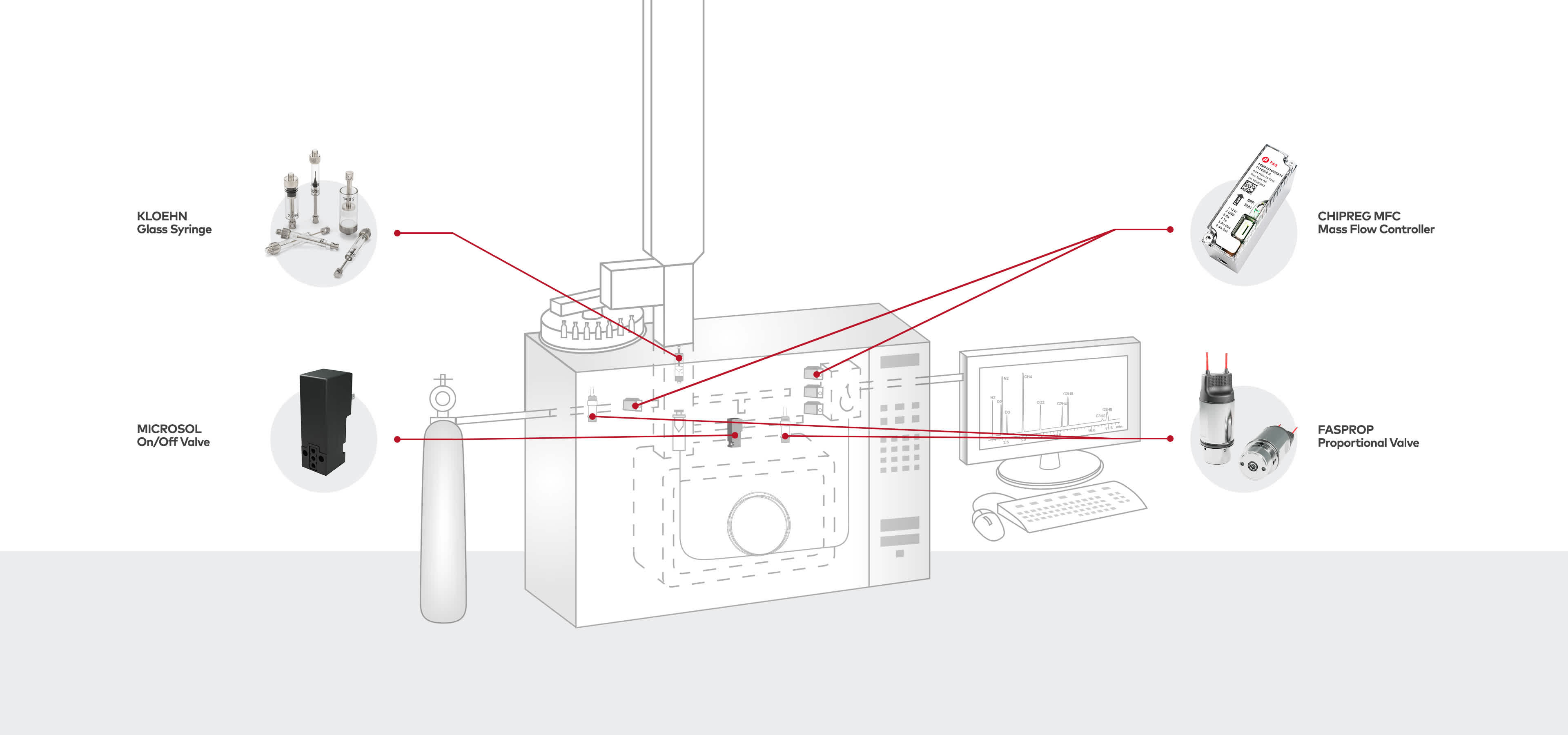
Water analysis total organic carbon
Total organic carbon analyzers are instruments that measure the concentration of carbon present in a sample in the form of organic compounds.
These analyzers are commonly used in a variety of industries, including water treatment, pharmaceuticals, and environmental monitoring.
One major challenge for OEMs is the need to constantly improve the performance and accuracy of TOC analyzers, while also reducing the cost of the instrument. This requires a significant investment in research and development to improve the sensitivity and specificity of the analytical techniques used in total organic carbon analysis. Numerous precision fluidic components are used to control liquid samples (water, acids) and gas (CO2, N2).
Elemental analysis
Elemental analysers typically use a variety of techniques to analyse the composition of a sample, such as combustion, infrared detection, and mass spectrometry.
To obtain accurate results, it is important that the analyser has precise control of the gas environment in which the analysis is taking place. In general, precise control of the gas environment is essential to obtain accurate and reproducible results in an elemental analyser. This requires the use of precise flow control and precise pressure control.
To meet these challenges, our engineers have developed the CHIPREG MFC, a mass flow controller that offers stable flow control regardless of fluctuations, compact size, and manifold mounting.
